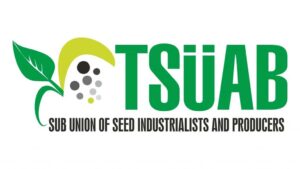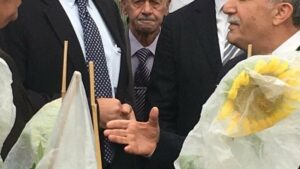Turkey is a cultural and commercial bridge between Asia and Europe and the country is in a unique position when it comes to genetic diversity in plants. The total number of plant species with seed and without seed is approximately 11,707, of which 3,649 are endemic. Turkey’s biodiversity and range of climates makes it very suitable for agriculture, particularly seed production, and it also has a logistical advantage in marketing.
This production requires a strong seed system and plant breeding, production and seed processing infrastructure, in order to remain sustainable and develop yield and quality in keeping with consumer and market demands. This is why Turkey has been working hard for a long time to strengthen its seed system and establish R&D and production infrastructure. As a result of these efforts, Turkey has, mainly in the private sector, established a large portion of its production and process related infrastructure, completed its seed organization, and become internationally competitive by integrating its national system with the EU and the rest of world.
Work in the seed business in Turkey started in 1925, with the Variety Registration and Certification Center, regional certification institutions and the first seed quality laboratories were founded in 1959. Plant breeding, variety registration, seed certification, seed trading, market inspection and all activities related to the seed business, were conducted under the Seed Law and Regulations that came into force in 1963. Turkey became a member of the ISTA in 1963 and in the years 1968, 1989, 1997 and 2007 became part of the OECD seed certification scheme for Sugar Beet, Oil Seeds, Fiber Plants, Maize and Sorghum, Cereals, Fodder Crops, and vegetables, respectively.

With the liberation of imports and exports that began in 1983, the prices being determined by the free market, and incentives for the private sector started a period during which the private sector was more prominent. Turkey became a member of the ISF in 1998. The entering into force of Seed Law No. 5553 in 2006, which was prepared according to Plant Breeders’ Rights Law No. 5042 and EU legislation, as well as technical and commercial developments in the seed business and Turkey’s membership to the UPOV in 2007, for protection of plant varieties, added impetus to the seed sector.
Throughout this period, in line with sector requirements and EU seed legislation, as well as the international seed system, secondary legislation was drafted on variety registration, seed trade and seed certification, market inspection and the delegation of official tasks to the private sector, and plant passports. All these legal regulations and related work harmonized Turkey’s efforts with the EU and the global seed industry. The establishment of The Turkish Seed Union (TÜRKTOB) in 2008 with 7 sub-unions was also a great achievement for the industry. TÜRKTOB, today with the goals of entering among the top 5 in the world seed sector and producing 1,5 million tons of certified seeds in 2023 is the locomotive of the sector.
Furthermore, recent seed policies; subsidies for the production and use of certified seed, sapling and other propagating materials; investment incentives and the developments in the sector, have lead to a steady increase in the use and production of certified seed.
The Turkish seed business is growing quickly thanks to its strong legal and technical infrastructure, and offers great potential for production and investment opportunities to the EU and other counties in the region.
In addition to Turkish companies with domestic capital, foreign companies and domestic-foreign partnerships are also investing and taking part in plant breeding, production and marketing activities.
EU and international companies in Turkey are working without any legal or technical obstacles in the fields of registration of plant varieties, the protection of new varieties in the UPOV system, and seed production and marketing. Our expectation in return, as the Turkish seed sector, is the creation of the appropriate environment for the activities of seed companies without technical or commercial difficulties in the EU and other countries. For example; the official technical report for DUS testing issued by the Turkish competent authorities should be also valid in the EU member states, and there should be equivalency in seed production and marketing practices.
Our seed sector has considerable potential for international sales/marketing in the surrounding regions, for example Central Asia and the Middle East, North Africa, the Balkans and Eastern Europe. Turkey has significant areas of opportunity, not only in some field crops but also with vegetable seeds, as well as the development of the agricultural industry and greenhouse business.
Within the scope of ensuring national and global food safety and security, the Turkish seed industry is working on and open to international and EU cooperation in the development of seed production and trade, and consequently a better seed system.
Editor’s Note: Kamil Yilmaz is the President of the Turkish Seed Union













